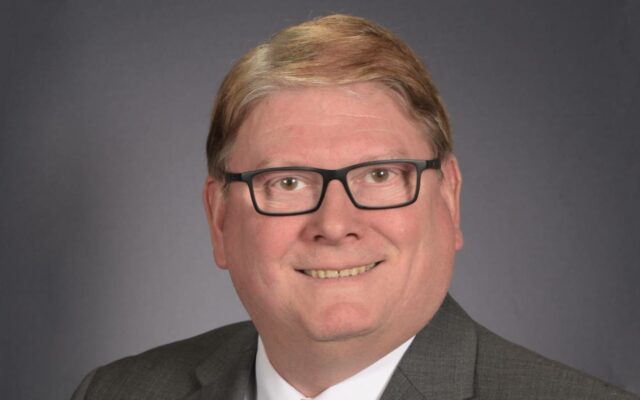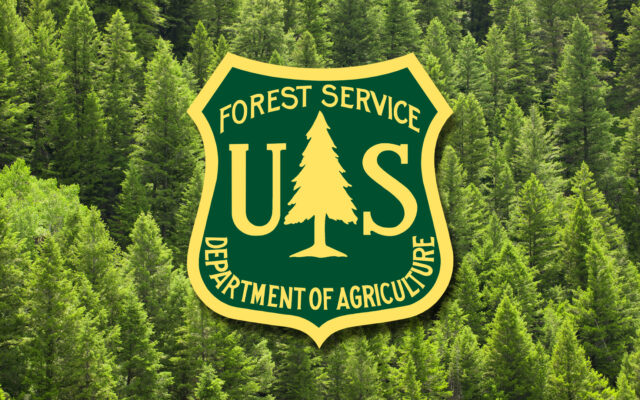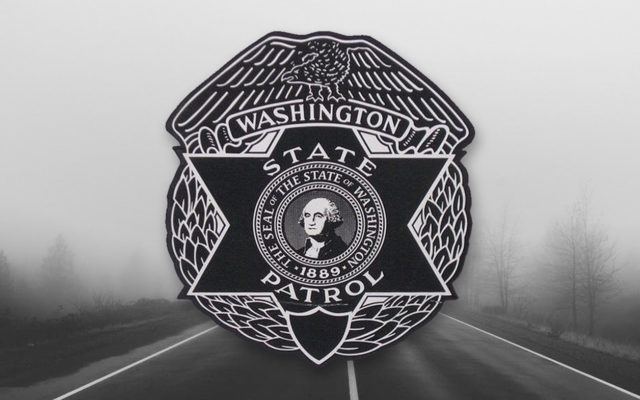Washington receives nearly $133 Million in RAISE grants; almost $5m for Shoalwater Tribe

U.S. Senator Patty Murray (D-WA), Chair of the Senate Appropriations Committee, shared that nearly $133 million in grant funding for Washington state under the Rebuilding American Infrastructure with Sustainability and Equity (RAISE) program.
RAISE grants — which were originally created under the American Recovery and Reinvestment Act as TIGER grants — can be used for a wide variety of infrastructure projects with local or regional impact.
According to Murray, this is the most Washington state has ever been awarded in RAISE grants, as well as the state being awarded the most grants of any state and receiving the most in total funding.
The state reportedly received a total of 5.89 percent of the RAISE funding available nationwide this year.
As Senate Appropriations Chair, Senator Murray has advocated for Washington state’s RAISE grant applicants in conversations with the Biden administration.
“The RAISE Discretionary Grant Program that I first established is hugely competitive—and today’s announcement is nothing short of historic. Washington state is really punching above its weight in securing these hard-won federal dollars,” said Senator Murray of the total RAISE grant allocation announced today. “I created this program to keep Washington state and America moving forward—I am really glad to see so many critical projects across our state getting the federal support they deserve. As Chair of the Senate Appropriations Committee, I will continue to make sure that the federal government’s spending priorities are Washington state’s priorities.”
The following RAISE grants were awarded to projects in Washington state:
Shoalwater Bay Indian Tribe – Upland Village Relocation Road Project, Shoalwater Bay Indian Tribe of the Shoalwater Bay Indian Reservation — $24.98 million
“The Shoalwater Bay Tribe is on the frontlines of some of the most serious effects of climate change,” said Senator Murray of the grant for the Shoalwater Bay Tribe. “This community is one that’s experiencing firsthand the impact of rising sea levels, and they need help to keep Tribal members and their property safe from harm. This grant is going to make a major difference for the Shoalwater Bay Tribe as they work to move to higher ground and protect their community from coastal hazards.”
The project will provide an approximately 3.87-mile ingress/egress loop road for the Shoalwater Bay Tribe’s Upland Village Relocation efforts. The Tribe is located in a coastal area at high risk of the effects of sea rise, storm surges, and potential tsunamis. In response, the Tribe has made substantial investments in land on higher ground in order to mitigate these risks and expand their community.
This project will provide an access road to support the planned development of the upland community as well as a starting point for relocation to that community.
The project’s investments will support access to essential health and emergency services, government services, education facilities, a library, a cultural repository and museum, and housing—all out of harm’s way. The project will also improve safety, sustain culture, invest in resilient infrastructure, create new jobs, and set a precedent for proactive response to increasing coastal hazards.
Bell Road-BNSF Railway Grade Separation, City of Blaine — $9.5 million
“Replacing at-grade crossings is so important for improving safety and reducing traffic and pollution in communities across Washington state—this project is a big deal for the City of Blaine, and I’m thrilled I was able to help them secure this funding,” said Senator Murray of the RAISE grant award for the Bell Road-BNSF Railway Grade Separation.
The project will complete 30 percent design, NEPA compliance, and right-of-way acquisition for the replacement of the at-grade crossing of BNSF’s Bellingham Subdivision main line with Bell Road (State Route 548). The replacement will be a grade-separated facility that integrates I-5 ramp realignment, including replacement of the SR 548 Dakota Creek Bridge, construction of a dedicated multiuse path parallel to Bell Road, as well as related transit, flooding, and aquatic habitat improvements within the project boundaries.
Puget Sound to Pacific Planning for Multi-use Trail, City of Port Angeles — $16.13 million
“This grant is going to make a huge difference in filling in the gaps on the trails connecting communities from the Puget Sound all the way to the Pacific Coast,” Senator Murray said of the grant for Port Angeles. “These trails are going to offer non-motorized access to Olympic National Park for the communities stretching from La Push to Bainbridge Island, and for all the tourists traveling in between—it’s great news for Puget Sound.”
This grant will support planning projects to complete approximately 100 miles of the gaps in the Great American Rail-Trail that run from the Bainbridge Island ferry terminal to the Pacific Ocean coastline in La Push, Washington. Completing these networks of trails will support accessibility to schools, service centers, and transit, and will allow residents and tourists to move through the region safely. The project will aim to connect communities in three counties and act as a non-motorized route to Olympic National Park.
Planning for Low-Emission Neighborhoods, City of Seattle — $1.2 million
“It is so important that we take a whole-of-government approach to lowering carbon emissions and tackling the climate crisis,” said Senator Murray of the grant for low-emission neighborhood planning in Seattle. “This project will put us on the path to make sure kids and families across Seattle can literally breathe easier—making our communities safer and healthier places to live, work, and play.”
This planning project will develop a funding and implementation plan for “Low-Emission Neighborhoods” in Seattle. Using a data-driven, community-centered approach—and engaging industry partners—the city will define zero-and low-emission transportation across several neighborhoods.
West Side Transformation: Multimodal Connections to the Shoreline South Regional Transit Hub, City of Shoreline — $20 million
“Shoreline is constantly growing—and supporting this effort has been a longtime priority of mine, so I am really excited for Sound Transit to open its newest Link light rail station,” Senator Murray said of the grant for Shoreline. “We have to make sure that pedestrians, cyclists, and people using wheelchairs can safely access the new station, and this grant will go a long way towards making that happen.”
Sound Transit is constructing a new Shoreline South/148th Link Station and will begin providing regional light rail service in 2024. The 145th Street Corridor has a history of high collisions, and is impassable to users in wheelchairs, pedestrians, and cyclists. This project will fund a series of multimodal improvements including a bicycle and pedestrian bridge—bringing 70 acres of neighborhood together—across Interstate 5, ADA-accessible sidewalks and curb ramps on 145th Street, and a series of bicycle boulevards. The project will improve overall traffic flow and safety along 145th, a bustling freight corridor, and improve access to the future light rail station—all of which will allow people, vehicles, and freight to move more efficiently throughout the region.
Big Quilcene River Bridge Replacement Project, Jamestown S’Klallam Tribe — $25 million
“Communities across Washington state are confronting the reality of climate change right where they live—that absolutely includes Tribal communities like the S’Klallam,” said Senator Murray of the grant for the Jamestown S’Kallam Tribe. “It’s so important that we upgrade our infrastructure to be more resilient against rising sea levels and frequent floods, which is exactly what this grant will help do. It will also provide much-needed pedestrian infrastructure to the Big Quilcene River bridge for hikers, cyclists, and tourists.”
The project will replace the Big Quilcene River bridge on Linger Longer Road. The new bridge will have pedestrian infrastructure and will also replace flood-prone segments of Linger Longer Road.
Port Orchard Breakwater Replacement, Port of Bremerton — $9.4 million
“The Port Orchard Marina Breakwater is a critical part of Port Orchard and the surrounding communities—fueling local economies, recreation, and more,” Senator Murray said of the grant for Port Orchard’s breakwater replacement. “The current breakwater is 20 years past its due date, so these federal dollars are going to provide much-needed improvements. This is going to benefit local and Tribal fishermen, small businesses, and everyone else who relies on the Port Orchard Marina.”
This project will replace the 48-year-old Port Orchard Marina Breakwater, a 1,500-foot-long public breakwater that is damaged and at risk of failure. The breakwater is now more than 20 years past its useful lifespan. It supports numerous public uses including government emergency response services, Tribal and non-Tribal commercial fishing, and includes moorage reserved exclusively for the Suquamish Tribe and is a destination for recreational activities—contributing more than $10 million annually to the region’s economy. The design phase to replace the breakwater is currently underway and the Port plans to begin construction in mid-2023, with completion expected in 2025.
Airport Drive and Spotted Road Safety and Multimodal Improvements, Spokane Airport Board — $22.8 million
“The Spokane Airport’s Spotted Road is critical for moving people and cargo throughout the airport and for families in nearby communities—but it is also a serious safety concern,” said Senator Murray. “I am so glad that with this grant, the airport will be able to build an overpass to improve safety and provide a safer connection for people in Airway Heights.”
Currently, Spotted Road’s location falls within the Runway Protection Zone for the Airport’s Primary Instrument Runway, which does not meet Federal Aviation Administration safety standards. Spotted Road also connects the airport’s cargo carriers to a busy freight corridor on U.S. 2 as well as Interstate 90. Every year numerous accidents, many involving serious injuries and fatalities, occur at the two intersections.
This project will construct an overpass interchange over Airport Drive and relocate Spotted Road outside the Runway Protection Zone at the Spokane Airport. This will increase safety, improve accessibility for traffic traveling to and from the airport and adjacent business park, and accommodate current and future growth. Additionally, this project will provide a safe, convenient connection for citizens in nearby Airway Heights.
Planning for Safe and Reliable Bike, Pedestrian & Transit Access for Hood River-White Salmon Bridge, Port of Hood River — $3.6 million
“Safe and functioning infrastructure is absolutely essential for the families and businesses in White Salmon and Hood River who rely on being able to get across the river,” said Senator Murray. “The current bridge cannot safely support traffic between Washington and Oregon, so it’s a really big deal that this grant will help move the bridge replacement along—while adding pedestrian and bike lanes so people can get to their jobs, shop, and visit family safely.”
The existing bridge was built in 1924, is functionally obsolete, and is nearing the end of its usable life–it is weight restricted and has a posted speed limit of just 15 miles per hour. Its two lanes are just over nine feet wide, hardly leaving two large vehicles sufficient space to pass. There is no permissible passage for pedestrian or bike traffic, and the bridge is seismically vulnerable.
The project will fund the planning, preliminary engineering, and design for pedestrian and bicycle amenities on the replacement bridge between Hood River, OR and White Salmon, WA. First, it will develop 10 percent preliminary engineering plans of planned pedestrian and bicycle improvements, then will advance to complete the 60 percent design, in consultation with the community.
RAISE Grants Awarded to Washington State in the Last Five Years include:
- $2.08 million for Aberdeen’s US-12 Highway-Rail Separation Project (2021)
- $5.6 million for WSDOT’s Rural Rail Rehabilitation project in Whitman, Spokane, and Lincoln Counties (2018)
- $14.3 million for Spokane County’s Geiger Boulevard Infrastructure Improvement Project (2018)
- $11.3 million for Spokane Airport’s Rail-Truck Transload Facility Project (2019)
- $17.75 million for the Port of Everett’s Mills to Maritime Cargo Terminal Project (2020)
- $7.01 million for the City of Ridgefield’s Pioneer Street Extension Project (2020)
- $5 million for the Port of Hood River’s White Salmon/Hood River Interstate Bridge Replacement Project (2020)
- $20 million for Seattle’s East Marginal Way Corridor Improvement Project (2021)
- $16 million for Longview’s Industrial Rail Corridor Expansion (IRCE) (2021)
- $22.1 million for Snohomish County’s Granite Falls Bridge #102 (2021)
- $25 million for Lynnwood’s Poplar Way Bridge Project (2022)
- $19 million for Bothell’s Bothell Way Multimodal Improvement Project (2022)
- $21.7 million for Spokane Valley’s Pines Road/Burlington Northern Santa Fe Grade (BNSF) Separation Project (2022)
- $5 million for Pullman’s Airport Road Multimodal & Regional Access Improvements Project (2022)
- $1 million for Yakima County’s Yakima County Heritage Connectivity Trails project (2022)
- $5 million for WSDOT’s Reconnecting I-90 Communities Project (2022)



